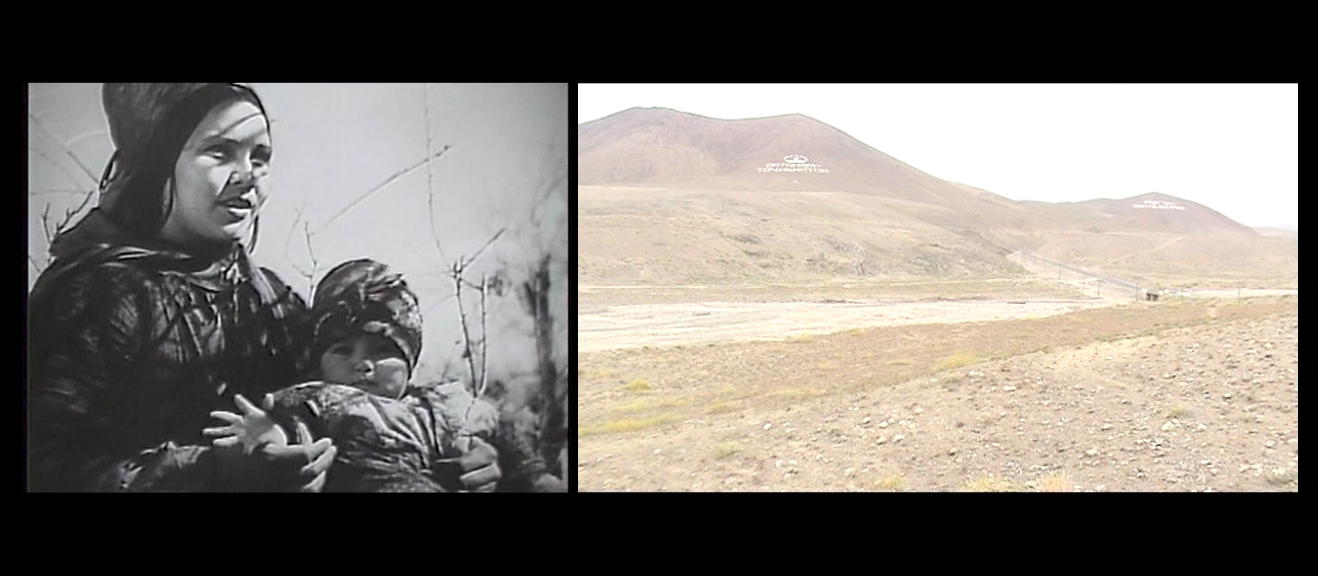in collaboration with Kirill Adibekov
“Kirill Adibekov (Moscow) and Olga Jitlina (St. Petersburg), while their residency in Taboshar, tried to analyze and understand the reasons led to the failure of the Soviet overambitious emancipation and modernization project in Central Asia: “In the late 1920s the large-scale ‘Sovietization’ of the East begun and one of its main goals was the emancipation of women. As part of this project and at the same time an enthusiastic report about it was the film by Dziga Vertov, Three Songs about Lenin (1934). Juxtaposing what we had seen and heard in Tajikistan with Vertov’s editing structures, we try to understand how the Soviet women’s project was settled down in the region, what is left of it two decades after the collapse of the Soviet Union. We want to understand the reasons of its failure and its historical significance.” (Olga Jitlina)
In their film Editing based on “Three Songs about Lenin” by D. Vertov, Kirill and Olga juxtapose scenes of Vertov’s film with the interviews of two young women, residents of Taboshar. Vertov’s constructive editing structure in his 1934 film is as simple as following: “Here is the lake where it was not. Here the trees grow where they did not. […] Here raised the factory where it was not. The University was opened, which was not here before. From old to new, from past to future …” (D. Vertov). As simple as this was the way the new took the place of the old not only in the film but in real life too. And this simplicity is now conversely mirrored in the stories of the young women who talk of the Soviet time, which they know only from the words of their parents, as a kind of paradise: “People didn’t get ill then.” Time in Tajikistan seems to go backwards – from new to old, from future to past: “There is no future here, neither for me nor for my kids.”
Georgy Mamedov
with the support of Bactria foundation as part of Artist-Society residence program

